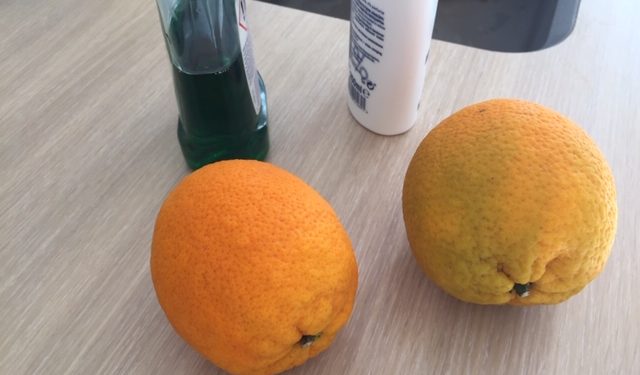Wash your hands when you have peeled an orange
Until new EU legislation prohibits the use of certain pesticides, Danish food authorities have issued a set of guidelines due to finds in amongst other oranges.
The article continues below.
By Bente D. Knudsen
The Danish food watchdog, Fødevarestyrelsen, recently issued a new statement concerning the alarming finds of the pesticides chlorpyrifos and chlorpyrifos-methyl in amongst other oranges and other citrus fruits.
Most of the residue is found on the orange peel, and therefore a new recommendation has been issued:
Wash your hands when you have peeled an orange. And if you need to use the peel from an orange or a lemon, you can reduce the danger by buying organic.
The new guideline has been issued due to alarming finds of the two pesticides in controls of imported fruit, notably in oranges.
The article continues below.
The pesticides, chlorpyrifos and chlorpyrifos-methyl, are forbidden to use in Denmark, however, they are still on EU’s list of products allowed to use as pest controls, and they are used in countries inside and outside of the EU.
New EU legislation is being put in place to make them illegal to use in the EU as a new risk evaluation of them concludes that a health risk cannot be excluded.
However, until this is new EU ban is in place, Danish food authorities will ensure that all fruit and vegetable samples containing finds of the two pesticides are evaluated for their health risk and, if necessary, make sure that they are withdrawn from the Danish market.
The article continues below.
The general advice is: buy Danish fruit and vegetables if you want to avoid the two pesticides, buy organic, and if you peel oranges (and citrus fruits): wash your hands afterwards.


